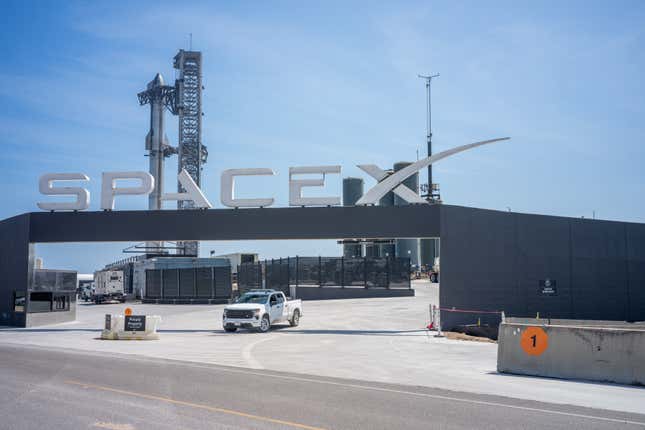Wall Street Bets: Assessing The Impact Of Trump's Trade War

Table of Contents
The Initial Market Reaction to Trump's Trade Policies
The announcement and implementation of Trump's tariffs triggered immediate market volatility. The uncertainty surrounding the potential impact on various sectors led to a period of significant upheaval.
-
Initial stock market drops: Sectors heavily impacted by tariffs, such as steel, aluminum, and agriculture, experienced immediate and sharp declines. Companies reliant on imported materials or exporting goods faced increased costs and reduced demand. The steel industry, for instance, initially saw a surge in domestic prices, but this was later tempered by global market adjustments and retaliatory tariffs.
-
Increased uncertainty and volatility: The unpredictable nature of the trade war led to increased market volatility. Investors adopted hedging strategies, employing options and futures contracts to protect their portfolios from potential losses. This hedging activity increased trading volumes and contributed to the overall market turbulence.
-
Flight to safety: Amidst the uncertainty, investors sought refuge in safer assets, such as government bonds and other low-risk investments. This "flight to safety" contributed to lower yields on these assets, reflecting the increased risk aversion in the market.
-
Market index responses: The Dow Jones Industrial Average, S&P 500, and Nasdaq Composite all experienced periods of significant decline and recovery throughout the trade war's duration. The severity of the impact varied depending on the sector composition of each index and the specific tariffs implemented.
Winners and Losers in the Trade War
Trump's trade war created a complex landscape of winners and losers. Some sectors benefited from protectionist measures, while others suffered from retaliatory tariffs and disrupted supply chains.
-
Winners: Domestic steel producers, for example, initially saw increased demand and higher prices due to the tariffs on imported steel. Certain agricultural sectors, while initially impacted, eventually received government subsidies to offset some of the losses.
-
Losers: Agricultural exporters faced significant challenges as retaliatory tariffs from other countries reduced their market access. Companies with complex global supply chains faced increased costs and logistical difficulties due to disrupted trade flows.
-
Multinational corporations: These companies were particularly vulnerable, facing challenges in managing their global operations and navigating the changing trade landscape. Their stock performance often reflected the complex interplay of various factors, including tariffs, currency fluctuations, and changes in consumer demand.
-
Specific company performance: Analyzing the stock performance of individual companies provides valuable insights into how different businesses were impacted. Companies heavily reliant on international trade, particularly those with significant operations in China, suffered disproportionately compared to those with a primarily domestic focus.
The Role of Wall Street Bets and Retail Investors
The Trump trade war also significantly impacted retail investors, particularly those active on platforms like Reddit's WallStreetBets.
-
Increased interest: Individual investors showed increased interest in stocks directly affected by the trade war, viewing them as potential opportunities or high-risk investments. This increased trading activity contributed to the market volatility.
-
Opportunities and risks: The period offered both opportunities and considerable risks. Successful investors capitalized on market fluctuations, while others suffered substantial losses. The high volatility increased the importance of fundamental analysis and risk management.
-
Heavily traded stocks: Specific stocks related to targeted sectors, such as steel, agricultural products, and technology companies involved in global supply chains, saw dramatic price swings due to the increased interest and speculation.
-
Social media sentiment: Social media played a significant role in shaping market sentiment and influencing trading decisions. The rapid spread of information and opinions, often lacking rigorous analysis, contributed to both short-term gains and potential losses for retail investors.
The Long-Term Economic Consequences of Trump's Trade War
The long-term consequences of Trump's trade war are complex and continue to unfold.
-
Inflation and consumer prices: Tariffs contributed to higher prices for some goods, impacting consumer spending and inflation rates. The increased cost of imported goods was not always fully offset by the benefits to domestic producers.
-
Global supply chains: The trade war disrupted established global supply chains, leading to increased costs and delays. Companies were forced to adapt their sourcing strategies, increasing operational complexities and potentially diminishing competitiveness.
-
US trade relationships: The trade war strained relationships with key trading partners, potentially harming long-term economic cooperation and trade volume. The uncertainty created an environment of decreased investor confidence.
-
Economic growth: The overall impact on economic growth remains a subject of debate. While some sectors benefited in the short term, the long-term effects on overall economic productivity and international trade flows were negative for many.
Conclusion
Trump's trade war significantly impacted Wall Street, creating winners and losers among both institutional and retail investors. The initial market volatility, shifts in investment strategies, and the long-term economic consequences all underscore the far-reaching effects of such aggressive trade policies. Understanding the dynamics of Trump's Trade War, including the role of Wall Street Bets and the broader market response, provides crucial insights into the complexities of global trade and its impact on investment decisions. To further your understanding of this complex economic period, delve deeper into specific case studies and the performance of individual stocks affected by the trade war. Learning from this historical period is vital for making informed investment decisions regarding future geopolitical and economic events.

Featured Posts
-
 Vater Machinery Awarded Top Dealer By Cnh Capital New Holland
May 29, 2025
Vater Machinery Awarded Top Dealer By Cnh Capital New Holland
May 29, 2025 -
 En Aragon 58 Colegios Con Mas Demandas Que Plazas Que Hacer
May 29, 2025
En Aragon 58 Colegios Con Mas Demandas Que Plazas Que Hacer
May 29, 2025 -
 The Ancelotti Capello Debate Tactical Differences And Achievements
May 29, 2025
The Ancelotti Capello Debate Tactical Differences And Achievements
May 29, 2025 -
 Prakiraan Cuaca Bandung 23 April Hujan Sepanjang Hari
May 29, 2025
Prakiraan Cuaca Bandung 23 April Hujan Sepanjang Hari
May 29, 2025 -
 Starbase Texas Le Projet De Ville De Space X D Elon Musk
May 29, 2025
Starbase Texas Le Projet De Ville De Space X D Elon Musk
May 29, 2025
Latest Posts
-
 Puppy Toilet Patent Dispute Dragon Den Entrepreneur Takes Legal Action
May 31, 2025
Puppy Toilet Patent Dispute Dragon Den Entrepreneur Takes Legal Action
May 31, 2025 -
 Dragon Den Star Sues Competitor Over Stolen Puppy Toilet Invention
May 31, 2025
Dragon Den Star Sues Competitor Over Stolen Puppy Toilet Invention
May 31, 2025 -
 Dragon Den Winners Lawsuit Alleged Puppy Toilet Idea Theft
May 31, 2025
Dragon Den Winners Lawsuit Alleged Puppy Toilet Idea Theft
May 31, 2025 -
 Estevan Road Sweeping Dates And Details For 2024
May 31, 2025
Estevan Road Sweeping Dates And Details For 2024
May 31, 2025 -
 Estevan Announces Complete Road Sweeping Schedule
May 31, 2025
Estevan Announces Complete Road Sweeping Schedule
May 31, 2025
